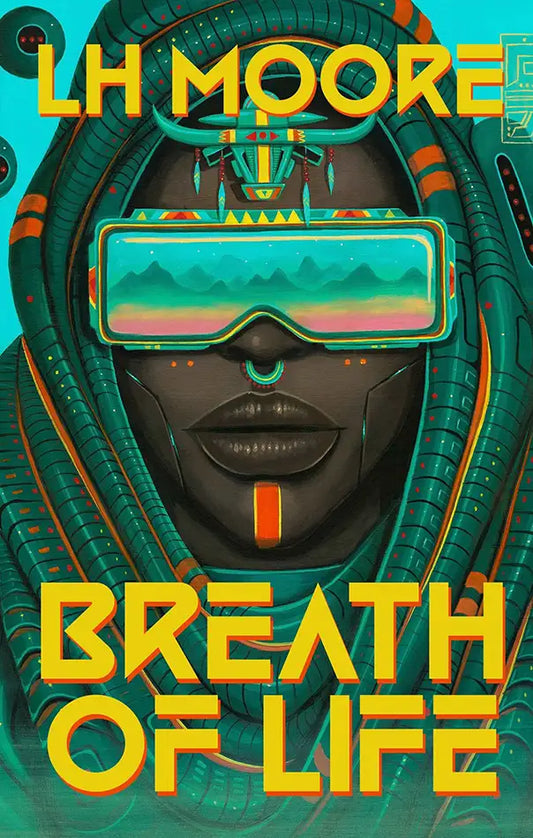
Because of the particular nature of my upbringing, I probably have more college credits in Biblical Study than you have in your major, and my major was not Biblical Study. That’s simply the way I grew up, the environment I grew up in, and the choices I made when I was younger. I don’t say this to bias your opinion of me, either positively or negatively, but rather to say that there was a point in my life when I thought I knew a great deal about religion. I was wrong, and I kind of hit the reset button on my understanding of these things and started learning all over again from scratch. But the thing that I did learn in those years was how to think about religion. That process, that manner of approaching the idea of religion, theology, and spiritual thought—that is what has stuck with me. It’s the artifact of my childhood, and probably the most important thing my father gave me.
The fantastic literature of my childhood centered around two authors: Tolkien and Lewis. Anyone more than familiar with both men will know their religious history, that Lewis was an atheist who, under Tolkien’s guidance, became first a theist of no particular affiliation, and then a good Anglican whose works on Christianity, while touted by modern American Evangelicals, were radical enough to place him well outside of the conservative mainstream in this country even now. Tolkien was a devout Catholic, very conservative, to the point that when Vatican II changed the liturgical response from Latin to English, he refused to make the transition. What has always interested me about these two is how that religiosity impacted on their primary works. I always knew Narnia was a thin metaphor, even as a child. It wasn’t until I was much older that I met people who read the books as honest fantasy, and were surprised when shown the undercurrents. I think that says something about how thoroughly the core themes of religious metaphor have penetrated the expectations of our collective genre narrative. Tolkien, on the other hand, did not write didactically. I’ve had more arguments with earnest Christians about this than I care to think about, but Tolkien is on record as saying that he despised didactic writing, chided Lewis for the thin veil of metaphor that he employed in the Narnia stories, and insisted that his Middle Earth wasn’t a secret instructional manual for anything. He did, however, say that The Lord of the Rings was a “fundamentally Catholic” story. That’s because Tolkien was a Catholic, and anything he produced was going to be colored by that thought system. And yet these two imaginations, both men professors and therefore prone to instruction, both men devout in their belief, both wonderfully creative in their storytelling, these two writers produced very different sorts of stories, especially when viewed as religious works. It’s always fascinated me, and confounded my father. It’s something we talk about a lot.
These two men were at the inception of what became our industry, as writers of fantasy. A good scholar will tell you about the history of the genre, all the people who came before these men, all the great stories that were told before the wardrobe was opened or little Bilbo had some rather grumpy guests in his parlor. From a practical standpoint, though, from a purely industrial standpoint, Tolkien was patient-zero of our grand imaginative contagion. And I think it’s worth pointing out that they were religious men, men who were thoughtful about their devotion and who, to varying degrees, included that religiosity in their work.
Let’s switch to the modern day. I think it’s fair to say that the majority of writers of fantasy are nominally agnostic, mostly atheist, usually post-religious or recovering spiritualists. I don’t want you to think that’s a bad thing, not by any means, but I do think that it has impacted the way we treat religion in our works.
Here’s my complaint. Writers are lazy in their religion. They put a lot of energy into their world building, devoting hour after hour to plotting and characterization, but when it comes time to fill in the religious spaces of their works, they too often rearrange the furniture of a real world religion, change a couple names, and call it good. It’s the same sort of dangerous shorthand that fantasy writers fell into after Tolkien. Elves are elves, priests are priests, and the Church is the Church. The reader has some familiarity with these things, so it’s easier to include what they already know rather than form something out of whole cloth.
There was a movement called the New Weird a few years ago in which writers began to subvert the common tropes of fantasy, using the tools of the established genre against itself, to tear the thing apart and build it anew. A lot of good work came out of that, but there was also a lot of reactionary writing. Simply reversing a trope does not subvert the trope. If anything, it reinforces the original stereotype. Rebellion isn’t revolution, it’s letting yourself be defined by the original by adopting its opposite. It’s not new thinking. We need new thinking.
We need something similar in how we deal with religion. There are too many clever atheists and stubborn devout who are busily trying to make a point in their handling of religion. Either they ignore it in their work, or they fill it with the rearranged furniture of the real world, or they play their hand of clumsy metaphors and secret language in the hopes of educating the reader. Understand that both sides of the argument are guilty of this. None of these serve the reader, or the story, and in the end they fail the writer as well. We reinforce by rebellion or devotion, and that’s not what we need. We need to be as seriously subversive in our approach to religion as those New Weird writers were about Tolkien. Not reactionary, not rebellious. Thoughtful. Meditative. We need to tear the thing apart and rebuild it from whole cloth.
The thing that fascinates me about religion is how it affects culture, and how culture, in turn, redirects religion. When we talk about religion, in most cases we’re really talking about the thing that culture has turned religion into, rather than the religion itself. And when we write about religion, what we usually write about is the thing that we’ve turned religion into in our lives. And that’s natural. Writers write what they know. But I think it’s worth examining that tendency in our writing, in the stories that we tell, and try to change that behavior. Religion is one of those things that has so deeply impacted culture that we usually don’t know it as a distinct thing. For the longest time, religion wasn’t a matter of choice but a matter of birth. When we talk about whether or not America was founded as a Christian nation, the discussion is almost meaningless, because what we mean by Christian is almost nothing like what people meant by the word back then. In the same way, when Tolkien said his books were fundamentally Catholic works, he didn’t mean that lembas bread was secretly the communion wafer, or that the sword of Aragorn was the body of Christ broken for our sins. But at some point we went from that kind of thinking to believing that for something to be considered a religious work, it had to be clumsily didactic, an exercise in instructive metaphor that would even make Lewis cringe.
When I say these things, I’m not saying that we need more religious writers in the field. I’m saying that the writers we have should be more considerate in their handling of religion. Considerate in the sense that they should be more thoughtful, more meditative, more intentional. Less lazy. Religion should not be an exercise in shorthand. It should be more than furniture, more than a diatribe, more than a metaphor. It needs to be just as real in our writing as it is in the actual world. And the danger with religion is that, regardless of which side of the argument we find ourselves, it’s too easy to simplify the other side. Because it’s something that so many of us feel very deeply, we have trouble seeing the other side of the argument as something honest, rational people could believe. And it comes out in our writing.
I want to give one example of thoughtful religious writing in modern fantasy. I’ve been intentionally not naming names or citing works simply because once you start doing that, you form lines of argument and that’s not my point. But it would be useful to have a rack to hang this hat on, so let me suggest you read Brandon Sanderson’s Mistborn series, especially the third book, The Hero of Ages. At first I was a little put off by Brandon’s portrayal of a formerly religious character falling into atheism and his subsequent trip back to belief, in the person of Sazed. It’s interesting, because the two books that lead up to The Hero of Ages have plenty of agnostic and atheistic characters who don’t bother me, but my initial reaction to Sazed’s odd faith journey was harsh, bad enough that I had to set the book down and come back to it a year or so later. Once I got past my own reaction, though, I found it to be a thoughtful and well-formed character study in the nature of belief, and the way faith moves through our lives. Also, it’s a cracking good read.
So write about religion the way you write about people. They’re flawed, they have motivations, they mean well, and they mean harm. Religion is an extension of us, a cultural contraption designed to interface with the cycles of mystery in our lives. It is more than furniture in the narrative. Learn to see the beauty in belief, as well as the danger.









